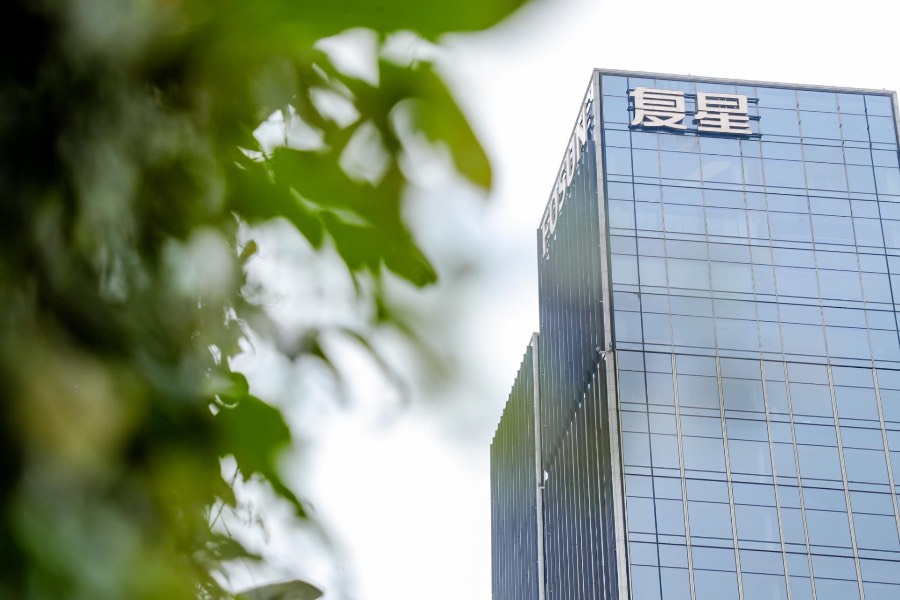Fosun’s Portuguese makeover moves ahead with $360 million health disposal

The conglomerate’s sale of 40% of Luz Saúde is its latest divestment in Portugal, though it continues to own major stakes of that and other assets in the country
Key Takeaways:
- Fosun has raised $360 million by selling 40% of its healthcare asset in Portugal, continuing its strategy of strengthening its balance sheet through asset sales
- Having survived a recent debt crisis, the conglomerate re-entered the dollar-bond market last year and issued $300 million in fresh notes this month
By Cheng Shui Tong
Fosun International Ltd. (0656.HK) continued its slimming down earlier this month, as its Fidelidade Portuguese unit announced plans to sell 40% of its wholly owned Luz Saúde healthcare group for 310 million euros ($364 million). The deal is just the latest sale by one of China’s largest private conglomerates as it claws its way back from a debt crisis. At the same time, the deal also reflects Fosun’s strategy of selling down holdings in some of its assets while maintaining major stakes.
After the latest sale, Fosun will still retain its remaining 60% stake in Luz Saúde. The disposal is expected to deliver three strategic benefits, namely, improving the company’s capital structure and liquidity; enabling business growth and value creation through collaboration with an experienced strategic partner; and strengthening Luz Saúde’s shareholder base to better support its mid-term expansion, according to its announcement of the deal.
Luz Saúde is one of Portugal’s largest private healthcare providers, operating 29 medical facilities that serve 75% of the population across hospitals and clinics. The 40% stake was purchased by a fund managed by Macquarie Asset Management.
Maintaining control
Luz Saúde is an important part of Fosun’s European investment portfolio, which spans insurance, healthcare, real estate and banking. The latest deal follows a similar pattern by Fosun as it sells down stakes in some of its other investments on the continent. In a similar deal in January 2024, the company sold 5.6% of Banco Comercial Português, also known as Millennium BCP, for 235 million euros, while retaining its remaining holding of over 20% in the bank. In May this year, Fosun also offloaded two towers in Lisbon’s Entrecampos property project to Banco de Portugal for 192 million euros, accounting for about 19% of the development’s total gross floor area, allowing Fosun to retain control of the overall project.
Such an approach shows that Fosun isn’t retreating from Portugal, but rather aims to maintain its exposure to the market in hopes of capitalizing on future growth. Partial sales also help to improve the company’s debt metrics, and reduce risks tied to specific asset exposures, while generating fresh capital for the company to invest elsewhere and use for debt repayment.
Fosun entered Portugal back in 2013 as the nation reeled during the eurozone debt crisis that forced massive public spending cuts and privatizations. Capitalizing on that, Fosun executed two major deals in 2014. The larger saw it take over leading insurer Fidelidade in May that year for 1 billion euros. That was followed by Fidelidade’s 460 million euro acquisition, aided by financing from Fosun, of 96% of Espirito Santo Saude, later renamed Luz Saúde.
Fosun started acquiring its stake in Millennium BCP in November 2016 with an initial 175 million euro investment for 16.7% of the company as recession-hit Portuguese assets traded at distressed multiples. Steady growth fundamentals and Portugal’s role as Europe’s gateway to Africa deepened Fosun’s conviction towards its investments in the country. Its current asset sell-downs suggest a redeployment – rather than retreat — from the country.
Improving liquidity
Fosun’s recent asset sales and other deleveraging efforts have allowed the conglomerate to gradually recover from a debt crisis three years ago. In its latest midyear report, its main listed vehicle, Fosun International, reported total debt of 222.1 billion yuan ($31 billion) at the end of June, up slightly from 214.1 billion yuan at the end of last year. Concurrently, the company’s total debt to total capital ratio edged up to 53% from 52% at the end of 2024. But the company also held 67.8 billion yuan in cash and bank balances midway through this year, complemented by untapped bank credit facilities worth 139.4 billion yuan, giving it ample liquidity.
Fosun’s 2022 debt crisis stemmed from years of aggressive expansion, including a major global acquisition spree, that rapidly drove up its liabilities. At the same time, disruptions during the pandemic severely hit the company’s cash flow. By September 2022, S&P Global Ratings had downgraded Fosun from BB to BB-, causing its offshore U.S. dollar bonds to tumble in value. The company was further rocked when Moody’s withdrew its rating for Fosun in April 2023, citing insufficient information.
Despite those difficulties, the value of Fosun’s assets consistently exceeded its liabilities. The company embarked on an aggressive deleveraging starting midway through 2022 by methodically offloading assets. Such sales included stakes in state-owned enterprises like Tsingtao Brewery and New China Life Insurance, along with significant overseas holdings, to improve the company’s funding access. The strategy succeeded in stabilizing Fosun’s finances and engineering a recovery from the crisis.
Return to the U.S. dollar bond market
As it pulled back from the brink, the company returned to the U.S. dollar bond market after a more than three-year hiatus with its issue of $300 million worth of 3.5-year senior unsecured notes in November 2024. S&P viewed the deal positively, citing tangible progress on improving the company’s funding flexibility. It affirmed Fosun’s BB- corporate credit rating with a “stable” outlook. In early September this year, Fosun subsequently issued another $400 million in notes carrying a 6.8% coupon rate.
While the worst of Fosun’s debt crisis has passed, its Hong Kong-listed shares remain depressed at around HK$5.60 – just half of where they traded before the turmoil. Analysts at Citi, which rates Fosun International a “buy,” noted proceeds from the latest divestments could support higher shareholder payouts. It said the stock currently trades at about a 70% discount to the company’s net asset value, implying the potential for considerable upside, prompting it to raise its target price to HK$6.50.
To subscribe to Bamboo Works free weekly newsletter, click here





